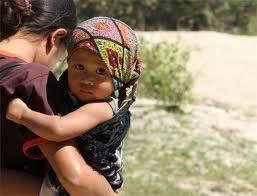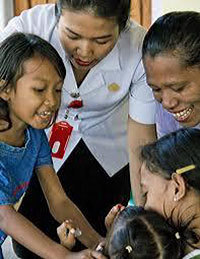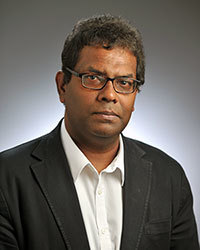
The University of Notre Dame Initiative for Global Development (NDIGD) was recently awarded a contract from Project Concern International (PCI) to conduct a post-project sustainability study.
The study will evaluate the long-term impact of Project CHOICE (Child Health Opportunities Integrated with Community Empowerment), a four-year, USAID-funded project designed to improve the health and nutrition status among children and their caretakers. The project ran from October 2003 to September 2007 in the Pandeglang District of Indonesia. Significant poverty, low employment, limited access to education and corruption among elected leaders characterized the project sites.

PCI aims to shed light on the determinant factors that may contribute to, or work against, the likelihood of project sustainability. Six years after CHOICE activities in Indonesia were completed, PCI is interested in returning to the communities to complete an in-depth post-project sustainability study. The project was designed to provide improved access to quality primary health care services, improved health-seeking and caregiving behaviors among caretakers, and successful implementation of PCI’s community-based health development model by partner nongovernmental organizations. Post-project sustainability studies measure whether program benefits are still present after project completion and examines what factors contribute to the success or failure in the sustainability of the program. Thus, NDIGD monitoring and evaluation experts will determine whether the benefits achieved during the program operation are still present in both the new cohort of children and in children who received services during the project.
NDIGD will integrate a data collection and an evaluation plan to synthesize the outcomes of this project. NDIGD’s previous experience in collecting data from rural and hard-to-reach population using rigorous research methods will be helpful in designing and executing this evaluation. For this study, NDIGD will use mobile phones in data collection, using technology NDIGD has successfully applied in other countries around the world. Survey questionnaires will be programmed in smartphones or tablets, and responses will be collected during the interview using the mobile devices. In addition, NDIGD will also conduct focus group discussions with project beneficiaries.
 Edwin Michael
Edwin Michael
The research team includes Edwin Michael, professor of biological sciences and a member of Notre Dame’s Eck Institute for Global Health. “Conducting a post-project evaluation is a unique opportunity to identify the longer-term impacts of the health and nutrition program. It is the type of evaluation that should be conducted more often for global health interventions. I am delighted to see that PCI has taken such evaluations seriously, and am pleased that I will be able to work with NDIGD in developing and conducting this evaluation,” Michael said.
NDIGD monitoring and evaluation specialists Lila Khatiwada and Juan Carlos Guzman will oversee the data collection in Indonesia in early 2014. “Post-project sustainability study is rarely done in the international development arena. This opportunity will provide us a better understanding of what works and what does not when we go back to the same communities after six years,” Khatiwada said.
NDIGD embraces a holistic approach in areas including commerce and economic development, security and peacebuilding, rule of law, global health, infrastructure, human development, energy and the environment, and education. Notre Dame strengths will help advance PCI goals via an evidence-based, multidisciplinary approach that will combine stringent project monitoring and evaluation, development policy and cooperation and policy improvement.
“Indonesia is a country of increasingly strategic importance to the University, and we are very pleased with this new research opportunity to assist PCI in measuring the outcomes of the health intervention conducted in the Pandeglang District,” said Notre Dame Vice President and Associate Provost for Internationalization Nicholas Entrikin.
Contact: Michael Sweikar, NDIGD managing director, msweikar@nd.edu